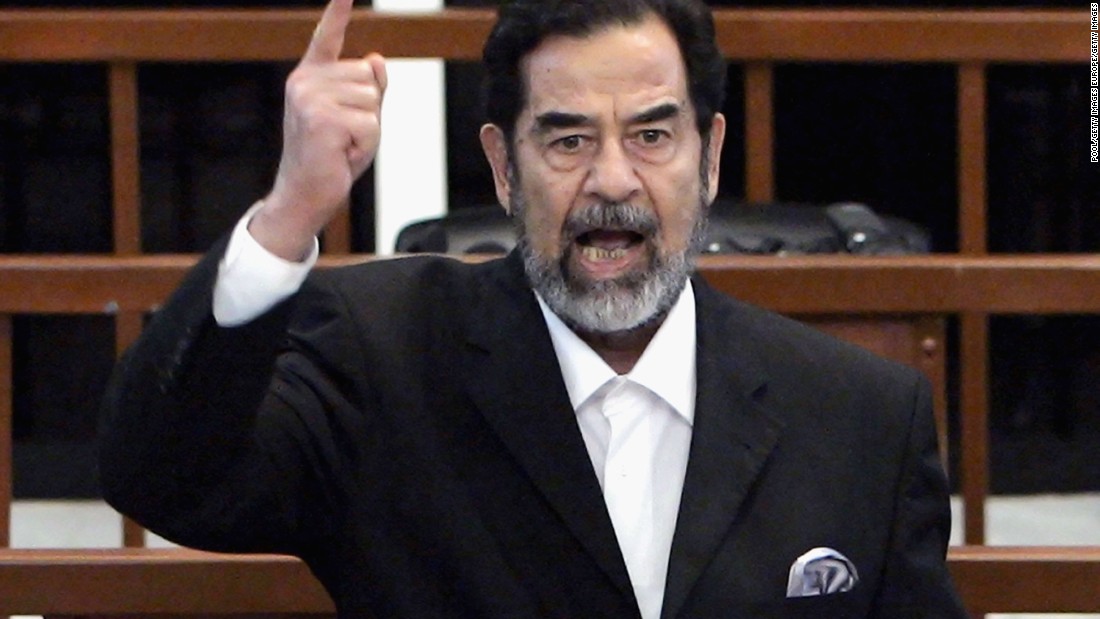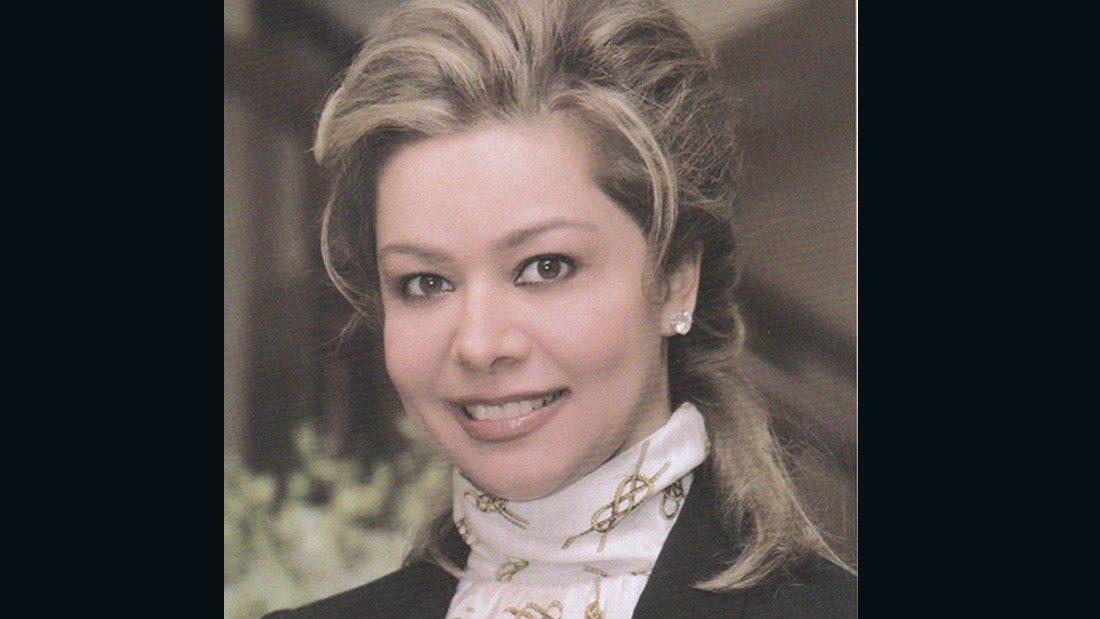(CNN)On
the morning of Eid al-Adha in December 2006, Raghad Saddam Hussein, her
sister and their children squeezed together in front of the television
in Raghad's home in Amman and wept as they watched footage of her father
being hurtled by masked men to the gallows where he would be hanged.
Saddam
Hussein, who ruled Iraq from 1979 until his overthrow and capture by a
US-led coalition in 2003, declined to wear the hood and shed no tears as
the noose was put around his neck. The Iraqiya TV broadcast ended
there, but a second video -- shot on a cell phone by an onlooker below
the scaffold -- emerged a few hours later showing the moment of death.
"I
never saw that moment and I refuse to see it," Raghad, Saddam Hussein's
eldest daughter, told CNN in her first interview since her father's
death ten years ago.
The footage
also showed witnesses hurling insults at the deposed leader, convicted
of crimes against humanity for the murder of 148 Iraqi Shias in 1982;
they chanted "Moktada! Moktada! Moktada!" in reference to militant Shia
cleric Moktada al-Sadr. Saddam Hussein shot back, "Is this how real men
behave?" before the trap sprang and the noose tightened on a man who
remained defiant to the end.
"The
details of his death are ugly and painful -- but it's an honorable
death," Raghad said by phone from the Jordanian capital, where she
sought refuge after the 2003 invasion of Iraq.
"I
don't think he would have gone in a death smaller than this. It was a
death that brought pride to me, my children, my sisters and their
children, to all those who love him and have a place for him in their
heart."
The
then US president George W. Bush, who ordered the invasion of Iraq,
said just after Saddam Hussein's death that the execution "would not
have been possible without the Iraqi people's determination to create a
society governed by the rule of law." But the sectarian subtext heard in
the video of his last moments seemed to denote an ensuing era of more
sectarianism and violence that would remain 10 years on.
Raghad,
who blames the US for the chaos that unraveled in her country, hopes
that President-elect Donald Trump will be different from his
predecessors.
"This man has just
arrived to the leadership ... But from what is apparent, this man has a
high level of political sensibility, that is vastly different than the
one who preceded him," she told CNN. "He exposed the mistakes of the
others, specifically in terms of Iraq, which means he is very aware of
the mistakes made in Iraq and what happened to my father."
During his presidential campaign, Trump said he opposed the war on Iraq, however he was publicly supportive
of the invasion in interviews before and after the war. And while
saying that Saddam Hussein "was a bad guy," Trump has praised the former
Iraqi leader's efficient killing of "terrorists".
Raghad
said she has not been involved in politics and supports no groups or
parties on the ground, however, the current Iraqi government has accused
the 48-year-old of supporting her father's Baath party, now outlawed,
and has called on Jordan to repatriate her.
More
recently it has accused her of supporting ISIS and cheer leading the
militants' takeover of Mosul, allegations that she vehemently denies.
"Of
course I don't have any relations to this group [ISIS] and other
extremist groups," she told CNN. "Moreover, the family's ideology has no
similarities to that of extremist groups."
"As a proof to this, these groups only became powerful in Iraq after we left the country and our rule ended."
Self-declared
jihadist groups sprung up in Iraq under the banner of fighting US army
"infidels," and the country became a magnet for foreign fighters. ISIS,
or the Islamic State of Iraq and Syria, started as the Islamic State of
Iraq in 2006 -- the year of Saddam Hussein's death -- and expanded to
Syria in 2014, three years after the eruption of violence there.
Source:CNN
Source:CNN


No comments:
Post a Comment